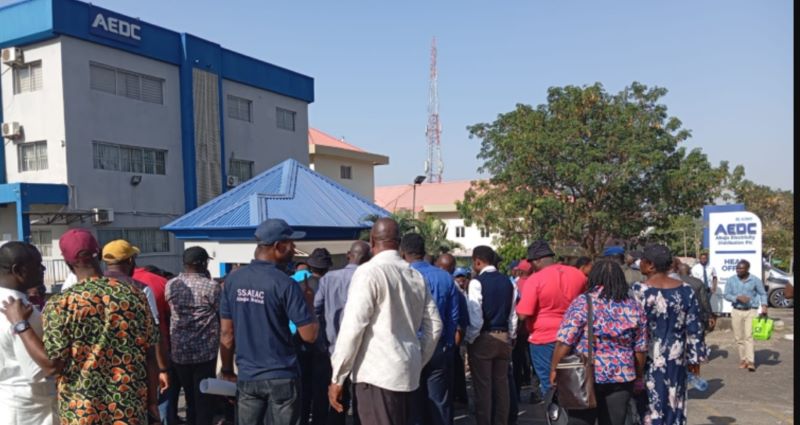THE Abuja Electricity Distribution Company (AEDC) has laid off about 800 employees in one of the biggest retrenchment exercises in Nigeria’s power sector in recent years, a move coming at a time millions of households are grappling with worsening electricity supply, inflation, and high energy tariffs.
The sack letters, one of which was obtained by News Point Nigeria, were issued on Wednesday, November 5, 2025, after months of internal restructuring by the utility firm responsible for electricity distribution across the Federal Capital Territory (FCT), as well as Kogi, Niger and Nasarawa States.
Reliable company sources told our correspondent that the firm had originally targeted 1,800 staff for disengagement before the number was reduced to 800 following protests and negotiations with the National Union of Electricity Employees (NUEE) and the Senior Staff Association of Electricity and Allied Companies (SSAEAC).
“The management wanted to sack 1,800, but after much pressure, they brought it down to 800. The unions initially insisted that nobody should be sacked,” a senior employee revealed on condition of anonymity.
Another source confirmed that the affected workers were initially expected to receive their disengagement notices on Monday, but the process was delayed and later activated midweek.
A copy of the sack letter titled “Notification of Disengagement from Service” dated November 5, 2025, and signed by AEDC’s Chief Human Resources Officer, Adeniyi Adejola, described the decision as part of an “ongoing rightsizing exercise.”
The letter assured that due entitlements would be paid after completion of exit procedures, including the return of company property and settlement of outstanding obligations.
The letter read in part: “We regret to inform you that your services with the company will no longer be required, effective 5th November 2025… Please be assured that this decision was made after careful consideration and in accordance with company policy.”
The latest retrenchment highlights the growing operational and financial distress in Nigeria’s power sector, which has struggled despite over a decade of privatization.
Distribution companies especially AEDC have been under pressure from the Nigerian Electricity Regulatory Commission (NERC) to cut losses, improve infrastructure and boost revenue recovery.
AEDC’s licence has faced regulatory scrutiny several times in recent years following ownership disputes, mounting debts and frequent leadership changes in 2021 and 2023.







